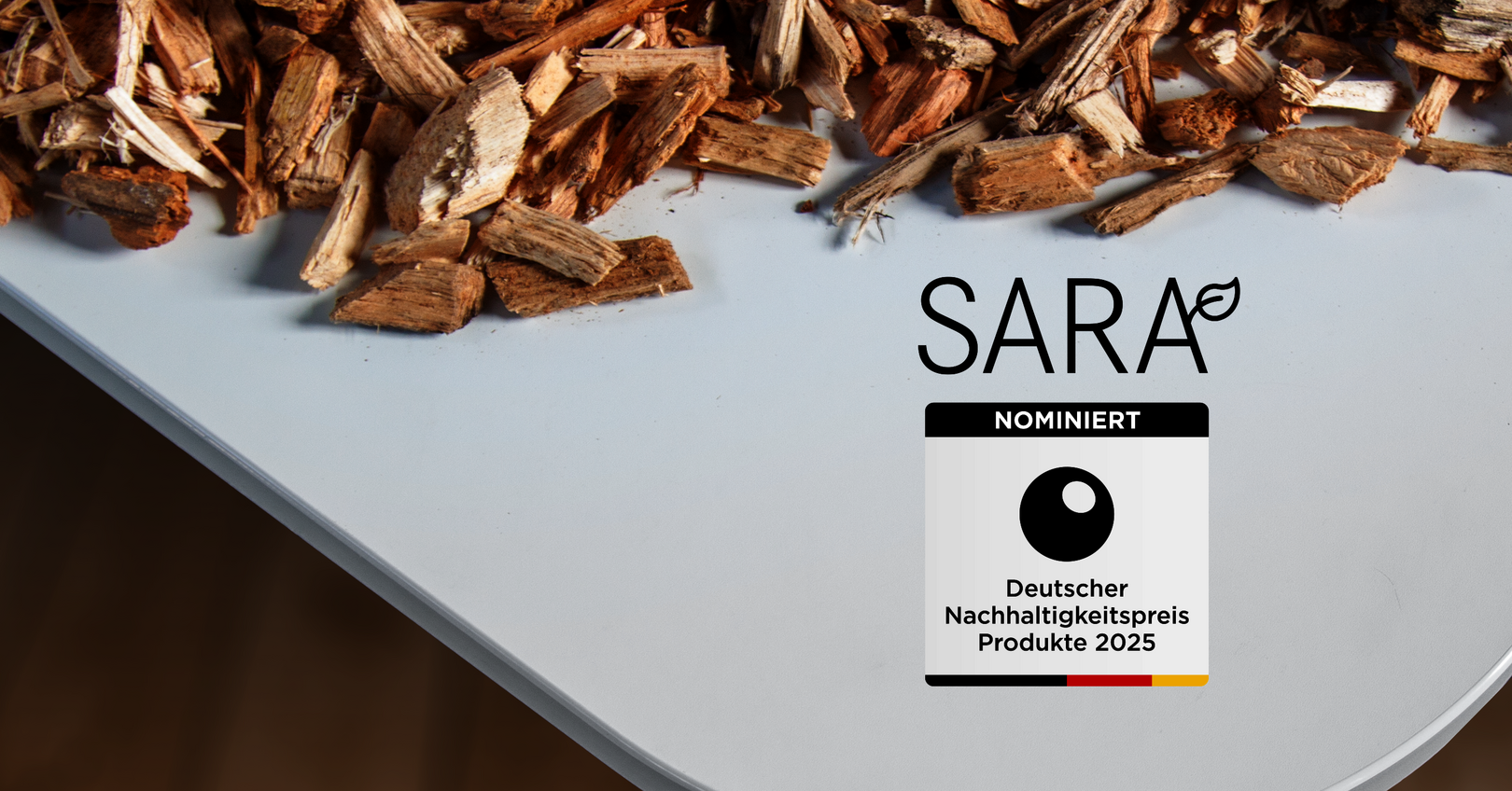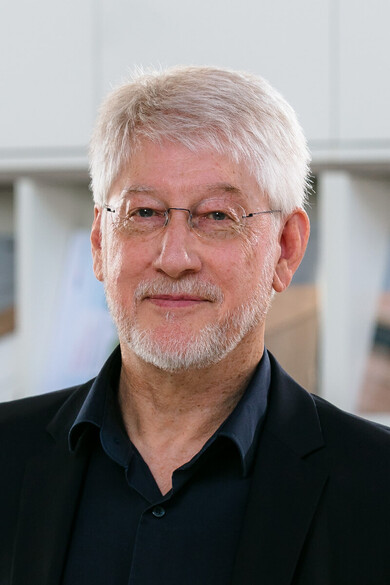
For SARA, waste wood (classified according to the European Waste Catalogue, e.g. old furniture, pallets, construction timber, etc.) is chipped and processed into new, high-quality furniture boards. Adhering materials, such as Glass, steel or aluminum, are separated by type in the reconditioning process and sent for recycling. At the end of their service life, At desktops and Cabinets thus become the raw material for new office furniture. With the SARA top in WINI furniture, the carbon sequestration in the material is extended by years to decades.
SARA is a sustainable board material for all WINI furniture: 100% reclaimed wood, recyclable, PEFC and FSC certified and less water consumption in production than conventional Chipboard.
The prestigious German Sustainability Award is one of the most important European prizes for ecological and social commitment. It recognizes pioneering projects that contribute to a more sustainable future. The DNP is based on the goals of Agenda 2030 and thus on the key areas of transformation such as climate, biodiversity, resources, supply chain and society. The award is a strong signal for companies that want to take responsibility for the environment and society.
"Participation in a competition such as the German Sustainability Award provides an important platform to make our contribution to the sustainable transformation of the office furniture industry visible.
For WINI, the nomination is a recognition of our efforts to date, it underlines our endeavors and is a motivation to continue on the path of sustainability and thus take responsibility for the future."
The continuous, sustainable transformation of conventional production and business processes towards sustainable and resource-conserving practices is firmly anchored in WINI's corporate culture.
The company aims to continuously improve the ecological footprint of its furniture and services through resource-conserving processes and the use of recyclable materials. The company pays attention to sustainable practices throughout the entire value chain - from modular production to the long-term availability of spare parts to ensure that the furniture has the longest possible useful life.
The transformation process also includes the development of recyclable products that are not only durable, but also easily repairable, dismantlable, renewable and reusable. WINI pursues the goal of using materials according to the cradle-to-cradle principle in order to keep as many resources as possible in the cycle instead of wasting them.

Jürgen Jordan
Head of Consulting and Architectural Consultancy